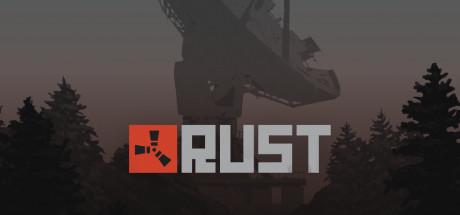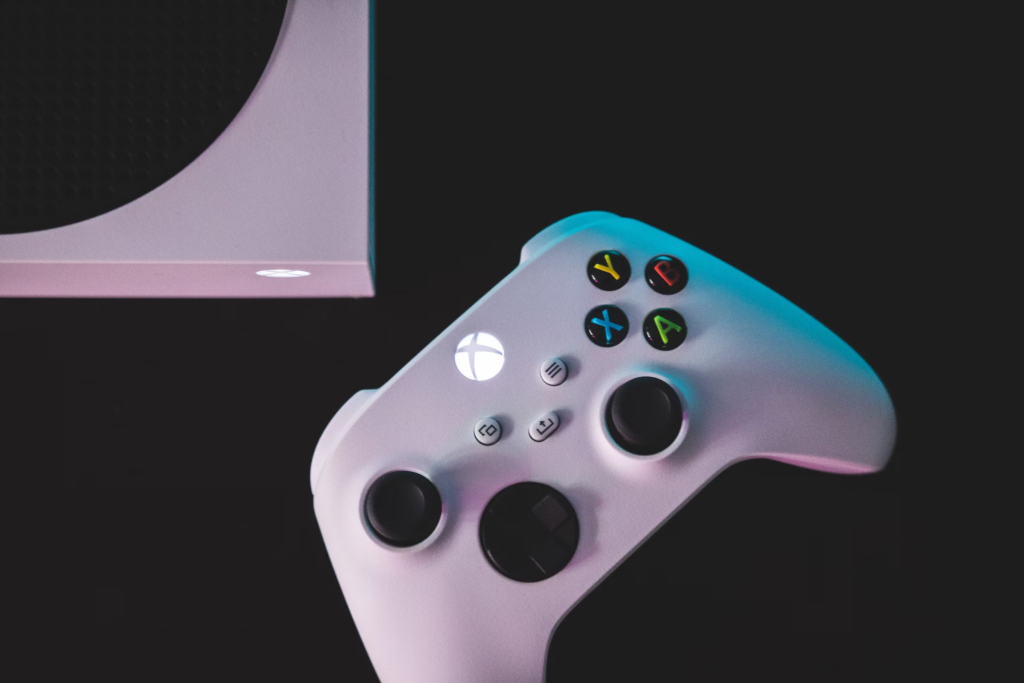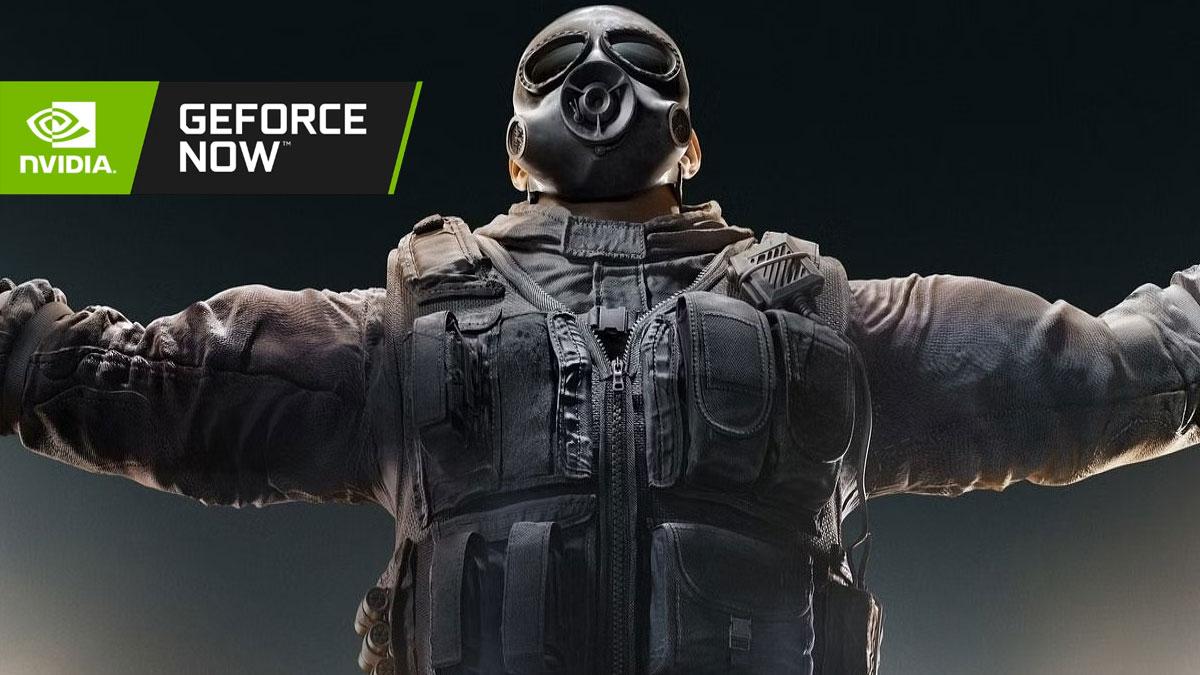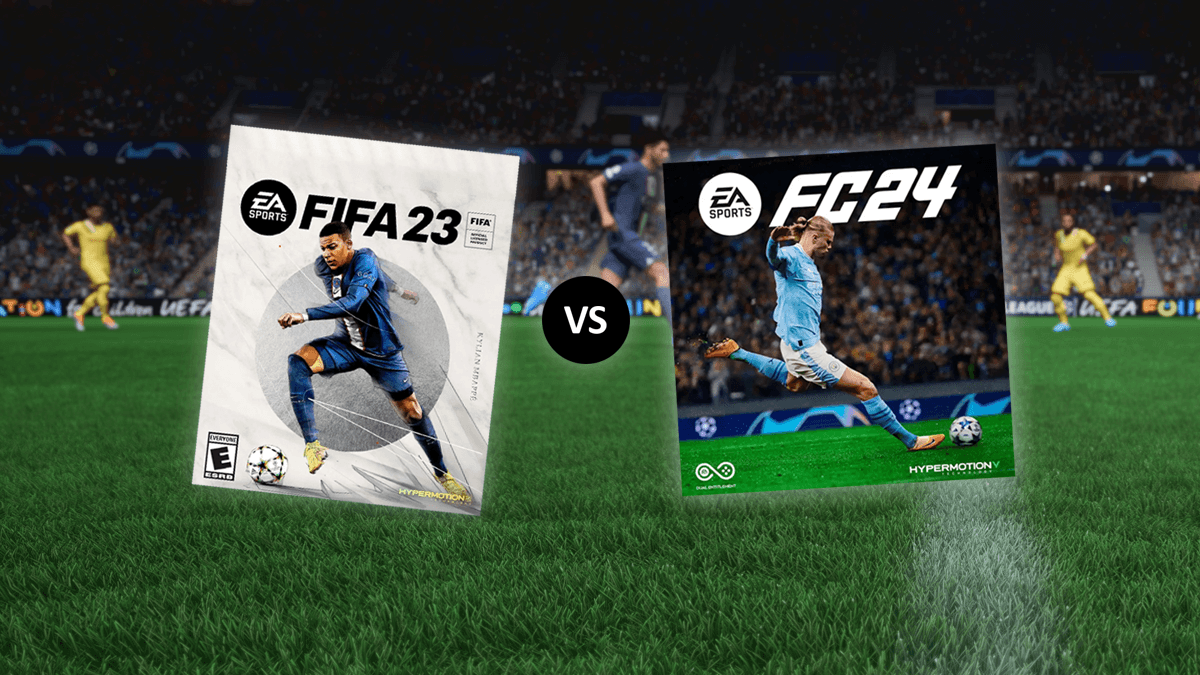Is Rust Cross-Platform Between Xbox and PC?


Release Date11 December 2013DeveloperFacepunch StudiosPlatformPlayStation 4, Microsoft Windows, Linux, Xbox One, macOS, Mac operating systemsIGN Rating7/10Steam rating9/10
Game Details
The gaming world is continuously evolving. From pixelated classics to VR masterpieces, one feature that’s been gaining traction over the past few years is cross-platform gaming. As the name suggests, it’s about blurring the lines between different gaming platforms, creating a unified gaming experience. One title that’s frequently part of this cross-platform conversation is the survival multiplayer hit, Rust. So, the question beckons, is Rust truly cross-platform between Xbox and PC?
History of Rust’s Development
When Rust first came into the gaming arena under Facepunch Studios’ banner, it was seen as a budding entrant in the survival genre, entering its early access phase in 2013 and formally emerging in 2018. Initially bearing resemblance to games like DayZ, Rust soon started carving out its distinct niche in the expansive world of survival gaming.
The premise was both captivating and challenging: players found themselves stranded on a remote island, stark naked, with the relentless forces of nature around them. The threat wasn’t just environmental, like unpredictable weather patterns or predatory wildlife, but also human. Every other player was potentially an adversary, making the gaming experience intensely strategic. Trust, alliances, and survival instincts were constantly tested.
Rust On Console

Rust’s inception was exclusively on the PC platform, and for good reasons. The detailed environment, dynamic player interactions, and comprehensive crafting system required significant resources. However, its gripping gameplay mechanics and multiplayer features soon caught the attention of gamers worldwide, making it a massive hit. The growing community started becoming more vocal about their desire for the game to be accessible on consoles.
Responding to the clamor and recognizing the broadening fanbase, Facepunch Studios began to envision and work towards an expansion. Fast forward a few years from its PC-exclusive days, Rust made its much-anticipated debut on platforms like Xbox, bridging the divide between PC and console survival enthusiasts.
The Concept of Cross-Platform Play
In today’s evolving digital landscape, cross-platform play stands out as a pioneering shift in the gaming industry. For those unfamiliar with the term, it refers to a collaborative feature enabling gamers from disparate platforms to coalesce within a shared gaming environment. Picture this scenario: Jonathan, a dedicated PC gamer from New York, collaborating on a strategy with Keiko from Tokyo, navigating her console of choice, the Xbox. Together, they immerse themselves in Rust, seamlessly sharing experiences and strategies.
Why is the industry pivoting towards this feature? The primary motivation is sustainability. A game’s vitality hinges on its active player base. Should participation wane on one platform, it can result in diminished interactions and elongated matchmaking intervals. Cross-platform play addresses this by amalgamating players from various platforms into a cohesive community, ensuring sustained engagement and vibrancy.
Moreover, the communal essence of gaming is revitalized with cross-platform capabilities. Previously, friends might have been compartmentalized due to their chosen gaming systems. With this innovation, such barriers are dismantled. Collaborations and competitions are no longer tethered by platform constraints.
From a commercial perspective, developers and publishers stand to benefit as well. Consolidating player bases can optimize server costs and resources. Moreover, it can lead to more synchronized content releases, ensuring all players, regardless of their platform, enjoy a consistent gaming experience.
In summation, cross-platform play isn’t merely a technological advancement. It signifies a more integrated and harmonized future for the gaming community at large. As these previously defined boundaries begin to blur, the industry moves towards a more inclusive and unified paradigm.
Current Cross-Platform Status of Rust
Any Rust player, whether they’re pitching their tent on the sprawling fields of a PC landscape or navigating the terrain from an Xbox console, has likely pondered one big question: “Why can’t we all just play together?” But here’s the deal — as of my last scoop, Rust hasn’t jumped on the cross-platform bandwagon. Yep, PC aficionados and Xbox warriors are still playing in parallel universes, and they haven’t met at the crossroads just yet.
So, let’s dive into the meat of it: Why this great divide? And dare we hope for a united gaming frontier?
The Hurdles of Cross-Platform Integration
Alright, let’s paint a picture. Building a game that’s smooth and riveting for one platform is like assembling a jigsaw puzzle — complex but doable. Now, making it cross-compatible? It’s like attempting to merge two distinct jigsaw sets and hoping the pieces fit. Not so straightforward, huh?
One of the big elephants in the room is the differing tech between PCs and Xbox consoles. PCs are the wild child of the tech world. They’re customizable to the hilt, from snazzy graphics cards to memory upgrades. So, someone playing Rust on a beastly PC rig could potentially enjoy crisper visuals than their Xbox counterpart. And in a game where spotting an enemy first can mean life or death, that’s a significant edge.
Then there’s the whole control conundrum. Anyone who’s ever switched from a keyboard and mouse to an Xbox controller (or vice versa) knows the transition isn’t always silky smooth. Whether you’re lining up a shot or hastily constructing a shelter, the controls can feel like they’re worlds apart. Some claim the precision of a mouse is unmatched, while others can’t let go of the intuitive feel of their Xbox controller. This divide can potentially tilt the competitive scales, making the game feel unfair.
Behind The Scenes
Beyond the player experience, think about the developers for a moment. Merging platforms isn’t just about letting everyone play together. It’s about ensuring that updates, new content, and even the smallest of patches work seamlessly on both PC and Xbox. And that, my friends, isn’t a walk in the park. It demands rigorous testing, a keen eye for feedback, and perhaps even more hands on deck.
And let’s not forget the big ‘M’ – Money. Going cross-platform isn’t just a switch that developers flip on a whim. It’s a calculated decision. Will the revenues soar? Or will the costs of the extra development outweigh the profits? And what if the community backlash isn’t worth the leap?
While the unified dream of Rust players from both PC and Xbox coexisting harmoniously is still hanging in the balance, it’s essential to understand the myriad of challenges that stand in the way. As gaming tech and trends evolve, all we can do is keep our fingers crossed and hope for a future where everyone can brave the Rust wilderness together.
A Balanced Examination

Every avid Rust player harbors a dream where the game’s world blurs the lines between PC and Xbox players. But, as the adage goes, every rose has its thorns. Cross-platform play for Rust, while promising, is laden with pros and cons. So, let’s pop the hood and examine what lies beneath the surface of this tantalizing potential.
The Positives:
An Expanded Player Universe: Think of a Rust landscape where Xbox and PC warriors unite. The excitement isn’t merely about the numbers but the rich tapestry of strategies and gameplay maneuvers that a diverse player base would weave.
Reduced Matchmaking Delays: For those who’ve twiddled their thumbs longer in the waiting room than in-game, combining player pools from both platforms promises shorter queues and a smoother ride to match perfection.
Unified Game Updates: It’s a shared feeling of anticipation for game enhancements. In a cross-platform Rust, PC and Xbox users could experience the joy of updates simultaneously, removing the sting of update envy.
Rekindling In-Game Friendships: The old conundrum of buddies split by platform loyalties. This Rust evolution would serve as a reunion ground, allowing old pals to face the game’s challenges as a unit.
The Challenges:
Tech Balancing Act: PCs, known for their endless personalization capabilities, contrast sharply with the more uniform realm of Xbox. Harmonizing the gameplay experiences between diverse PC setups and Xbox could feel like navigating a maze with shifting walls.
Gameplay Dynamics: The classic mouse-keyboard versus controller debate isn’t just about comfort. In the adrenaline-pumping settings of Rust, the precision of a mouse might offer PC users a distinct advantage in situations where reactions make or break the outcome.
Control Adaptations: Transitioning between a keyboard and controller isn’t a walk in the park. Routine actions, ranging from menu navigation to in-game maneuvers, might require tailored modifications to ensure gameplay consistency across the board.
Capturing the Community’s Beat:
Enter the vibrant, outspoken Rust community! A visit to any dedicated game forum or a glance at Rust-themed social media channels paints a picture of fervent discussions and varied viewpoints.
Many draw parallels to gaming behemoths like Fortnite and Rocket League, whose cross-platform initiatives have transformed player experiences. Their achievements dangle as alluring benchmarks for Rust’s potential cross-platform journey.
However, optimism is laced with caution. Some fans express concerns about Rust’s unique identity being compromised, apprehensive that the intricate competitive layers might blur in a cross-platform setup. There’s also a question of maintaining Rust’s gritty charm when juggling distinct platforms and controls.
But the spectrum of opinion is broad. A significant chunk of players is eager to embrace this fusion, envisioning a Rust landscape enriched by the diverse strategies and gameplay elements of both worlds.
In the unfolding saga of Rust, the cross-platform debate adds a layer of intrigue, hope, and just a sprinkle of unpredictability. The future remains unwritten, but as we await the next chapter, the community remains abuzz, speculating, debating, and dreaming of what lies ahead.
Conclusion
Rust’s rise, from humble origins as an early-access title to its current stature as a dominant multi-platform game, serves as a shining example of what vision and perseverance can achieve in the gaming industry. At the moment, the thought of Rust facilitating a seamless experience between Xbox and PC is an enticing prospect, yet it remains in the realm of aspiration. In a domain characterized by constant reinvention, forecasting future trends is always a challenge. But considering the fluid nature of the gaming world, it’s plausible to envision a day when Rust seamlessly integrates these platforms.
The fervent Rust community, with its unwavering commitment and enthusiasm, plays a pivotal role in the game’s trajectory. Their ongoing discourse, blending dreams and concerns, stands as a vital compass guiding Rust’s future path.
Concurrently, Facepunch Studios, the architects of Rust, bear a significant responsibility. Their mission? To remain attuned to the voices of their player base, grapple with the complex dynamics of cross-platform integration, and assess the potential merits of creating a harmonized gaming environment. The atmosphere is rife with expectation; we might just be on the brink of entering a Rust epoch where platform boundaries dissolve, heralding an age of integrated gaming adventures.
Tagged
Share This Article
Release Date11 December 2013DeveloperFacepunch StudiosPlatformPlayStation 4, Microsoft Windows, Linux, Xbox One, macOS, Mac operating systemsIGN Rating7/10Steam rating9/10
Game Details
The gaming world is continuously evolving. From pixelated classics to VR masterpieces, one feature that’s been gaining traction over the past few years is cross-platform gaming. As the name suggests, it’s about blurring the lines between different gaming platforms, creating a unified gaming experience. One title that’s frequently part of this cross-platform conversation is the survival multiplayer hit, Rust. So, the question beckons, is Rust truly cross-platform between Xbox and PC?
History of Rust’s Development
When Rust first came into the gaming arena under Facepunch Studios’ banner, it was seen as a budding entrant in the survival genre, entering its early access phase in 2013 and formally emerging in 2018. Initially bearing resemblance to games like DayZ, Rust soon started carving out its distinct niche in the expansive world of survival gaming.
The premise was both captivating and challenging: players found themselves stranded on a remote island, stark naked, with the relentless forces of nature around them. The threat wasn’t just environmental, like unpredictable weather patterns or predatory wildlife, but also human. Every other player was potentially an adversary, making the gaming experience intensely strategic. Trust, alliances, and survival instincts were constantly tested.
Rust On Console

Rust’s inception was exclusively on the PC platform, and for good reasons. The detailed environment, dynamic player interactions, and comprehensive crafting system required significant resources. However, its gripping gameplay mechanics and multiplayer features soon caught the attention of gamers worldwide, making it a massive hit. The growing community started becoming more vocal about their desire for the game to be accessible on consoles.
Responding to the clamor and recognizing the broadening fanbase, Facepunch Studios began to envision and work towards an expansion. Fast forward a few years from its PC-exclusive days, Rust made its much-anticipated debut on platforms like Xbox, bridging the divide between PC and console survival enthusiasts.
The Concept of Cross-Platform Play
In today’s evolving digital landscape, cross-platform play stands out as a pioneering shift in the gaming industry. For those unfamiliar with the term, it refers to a collaborative feature enabling gamers from disparate platforms to coalesce within a shared gaming environment. Picture this scenario: Jonathan, a dedicated PC gamer from New York, collaborating on a strategy with Keiko from Tokyo, navigating her console of choice, the Xbox. Together, they immerse themselves in Rust, seamlessly sharing experiences and strategies.
Why is the industry pivoting towards this feature? The primary motivation is sustainability. A game’s vitality hinges on its active player base. Should participation wane on one platform, it can result in diminished interactions and elongated matchmaking intervals. Cross-platform play addresses this by amalgamating players from various platforms into a cohesive community, ensuring sustained engagement and vibrancy.
Moreover, the communal essence of gaming is revitalized with cross-platform capabilities. Previously, friends might have been compartmentalized due to their chosen gaming systems. With this innovation, such barriers are dismantled. Collaborations and competitions are no longer tethered by platform constraints.
From a commercial perspective, developers and publishers stand to benefit as well. Consolidating player bases can optimize server costs and resources. Moreover, it can lead to more synchronized content releases, ensuring all players, regardless of their platform, enjoy a consistent gaming experience.
In summation, cross-platform play isn’t merely a technological advancement. It signifies a more integrated and harmonized future for the gaming community at large. As these previously defined boundaries begin to blur, the industry moves towards a more inclusive and unified paradigm.
Current Cross-Platform Status of Rust
Any Rust player, whether they’re pitching their tent on the sprawling fields of a PC landscape or navigating the terrain from an Xbox console, has likely pondered one big question: “Why can’t we all just play together?” But here’s the deal — as of my last scoop, Rust hasn’t jumped on the cross-platform bandwagon. Yep, PC aficionados and Xbox warriors are still playing in parallel universes, and they haven’t met at the crossroads just yet.
So, let’s dive into the meat of it: Why this great divide? And dare we hope for a united gaming frontier?
The Hurdles of Cross-Platform Integration
Alright, let’s paint a picture. Building a game that’s smooth and riveting for one platform is like assembling a jigsaw puzzle — complex but doable. Now, making it cross-compatible? It’s like attempting to merge two distinct jigsaw sets and hoping the pieces fit. Not so straightforward, huh?
One of the big elephants in the room is the differing tech between PCs and Xbox consoles. PCs are the wild child of the tech world. They’re customizable to the hilt, from snazzy graphics cards to memory upgrades. So, someone playing Rust on a beastly PC rig could potentially enjoy crisper visuals than their Xbox counterpart. And in a game where spotting an enemy first can mean life or death, that’s a significant edge.
Then there’s the whole control conundrum. Anyone who’s ever switched from a keyboard and mouse to an Xbox controller (or vice versa) knows the transition isn’t always silky smooth. Whether you’re lining up a shot or hastily constructing a shelter, the controls can feel like they’re worlds apart. Some claim the precision of a mouse is unmatched, while others can’t let go of the intuitive feel of their Xbox controller. This divide can potentially tilt the competitive scales, making the game feel unfair.
Behind The Scenes
Beyond the player experience, think about the developers for a moment. Merging platforms isn’t just about letting everyone play together. It’s about ensuring that updates, new content, and even the smallest of patches work seamlessly on both PC and Xbox. And that, my friends, isn’t a walk in the park. It demands rigorous testing, a keen eye for feedback, and perhaps even more hands on deck.
And let’s not forget the big ‘M’ – Money. Going cross-platform isn’t just a switch that developers flip on a whim. It’s a calculated decision. Will the revenues soar? Or will the costs of the extra development outweigh the profits? And what if the community backlash isn’t worth the leap?
While the unified dream of Rust players from both PC and Xbox coexisting harmoniously is still hanging in the balance, it’s essential to understand the myriad of challenges that stand in the way. As gaming tech and trends evolve, all we can do is keep our fingers crossed and hope for a future where everyone can brave the Rust wilderness together.
A Balanced Examination

Every avid Rust player harbors a dream where the game’s world blurs the lines between PC and Xbox players. But, as the adage goes, every rose has its thorns. Cross-platform play for Rust, while promising, is laden with pros and cons. So, let’s pop the hood and examine what lies beneath the surface of this tantalizing potential.
The Positives:
An Expanded Player Universe: Think of a Rust landscape where Xbox and PC warriors unite. The excitement isn’t merely about the numbers but the rich tapestry of strategies and gameplay maneuvers that a diverse player base would weave.
Reduced Matchmaking Delays: For those who’ve twiddled their thumbs longer in the waiting room than in-game, combining player pools from both platforms promises shorter queues and a smoother ride to match perfection.
Unified Game Updates: It’s a shared feeling of anticipation for game enhancements. In a cross-platform Rust, PC and Xbox users could experience the joy of updates simultaneously, removing the sting of update envy.
Rekindling In-Game Friendships: The old conundrum of buddies split by platform loyalties. This Rust evolution would serve as a reunion ground, allowing old pals to face the game’s challenges as a unit.
The Challenges:
Tech Balancing Act: PCs, known for their endless personalization capabilities, contrast sharply with the more uniform realm of Xbox. Harmonizing the gameplay experiences between diverse PC setups and Xbox could feel like navigating a maze with shifting walls.
Gameplay Dynamics: The classic mouse-keyboard versus controller debate isn’t just about comfort. In the adrenaline-pumping settings of Rust, the precision of a mouse might offer PC users a distinct advantage in situations where reactions make or break the outcome.
Control Adaptations: Transitioning between a keyboard and controller isn’t a walk in the park. Routine actions, ranging from menu navigation to in-game maneuvers, might require tailored modifications to ensure gameplay consistency across the board.
Capturing the Community’s Beat:
Enter the vibrant, outspoken Rust community! A visit to any dedicated game forum or a glance at Rust-themed social media channels paints a picture of fervent discussions and varied viewpoints.
Many draw parallels to gaming behemoths like Fortnite and Rocket League, whose cross-platform initiatives have transformed player experiences. Their achievements dangle as alluring benchmarks for Rust’s potential cross-platform journey.
However, optimism is laced with caution. Some fans express concerns about Rust’s unique identity being compromised, apprehensive that the intricate competitive layers might blur in a cross-platform setup. There’s also a question of maintaining Rust’s gritty charm when juggling distinct platforms and controls.
But the spectrum of opinion is broad. A significant chunk of players is eager to embrace this fusion, envisioning a Rust landscape enriched by the diverse strategies and gameplay elements of both worlds.
In the unfolding saga of Rust, the cross-platform debate adds a layer of intrigue, hope, and just a sprinkle of unpredictability. The future remains unwritten, but as we await the next chapter, the community remains abuzz, speculating, debating, and dreaming of what lies ahead.
Conclusion
Rust’s rise, from humble origins as an early-access title to its current stature as a dominant multi-platform game, serves as a shining example of what vision and perseverance can achieve in the gaming industry. At the moment, the thought of Rust facilitating a seamless experience between Xbox and PC is an enticing prospect, yet it remains in the realm of aspiration. In a domain characterized by constant reinvention, forecasting future trends is always a challenge. But considering the fluid nature of the gaming world, it’s plausible to envision a day when Rust seamlessly integrates these platforms.
The fervent Rust community, with its unwavering commitment and enthusiasm, plays a pivotal role in the game’s trajectory. Their ongoing discourse, blending dreams and concerns, stands as a vital compass guiding Rust’s future path.
Concurrently, Facepunch Studios, the architects of Rust, bear a significant responsibility. Their mission? To remain attuned to the voices of their player base, grapple with the complex dynamics of cross-platform integration, and assess the potential merits of creating a harmonized gaming environment. The atmosphere is rife with expectation; we might just be on the brink of entering a Rust epoch where platform boundaries dissolve, heralding an age of integrated gaming adventures.



